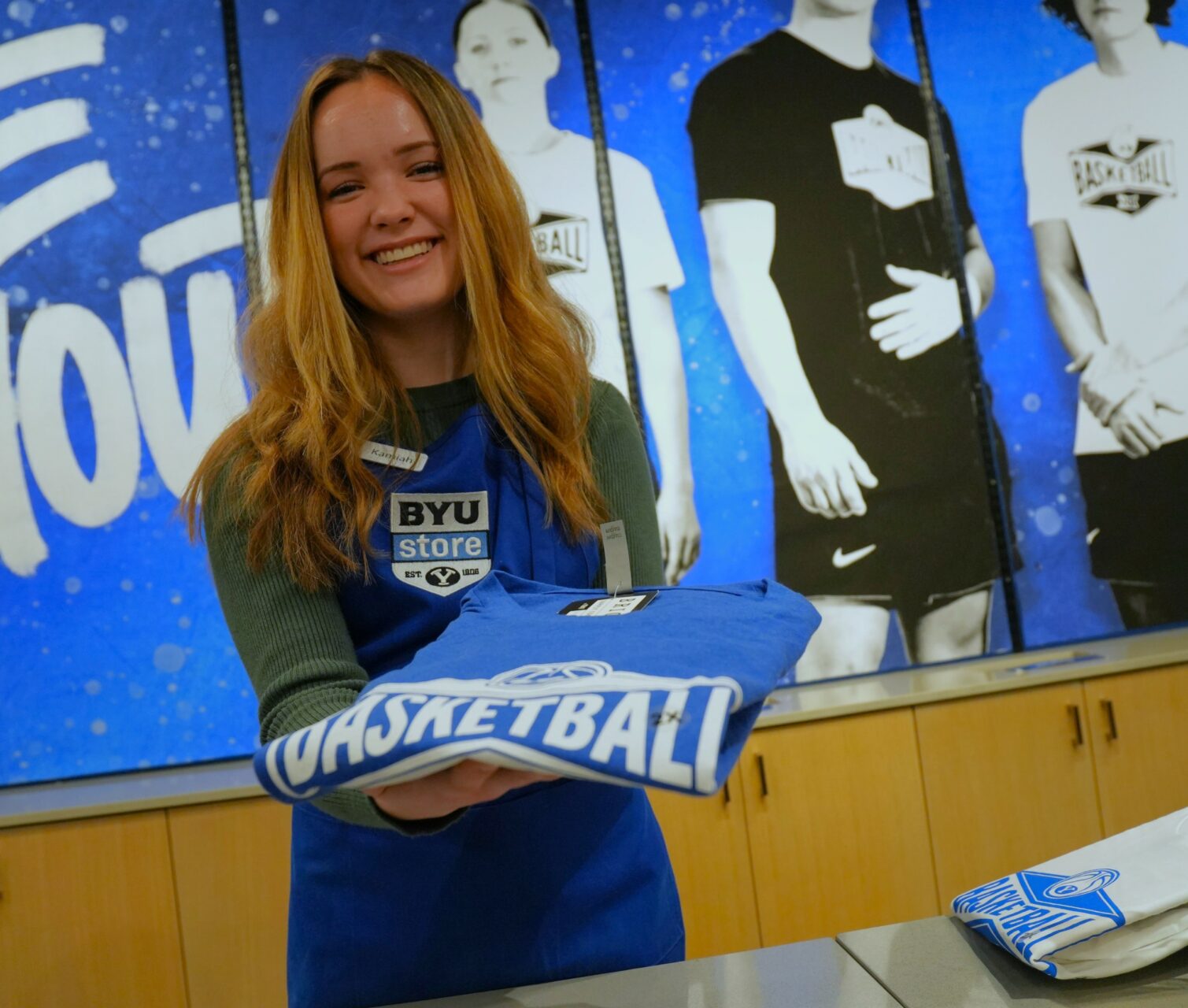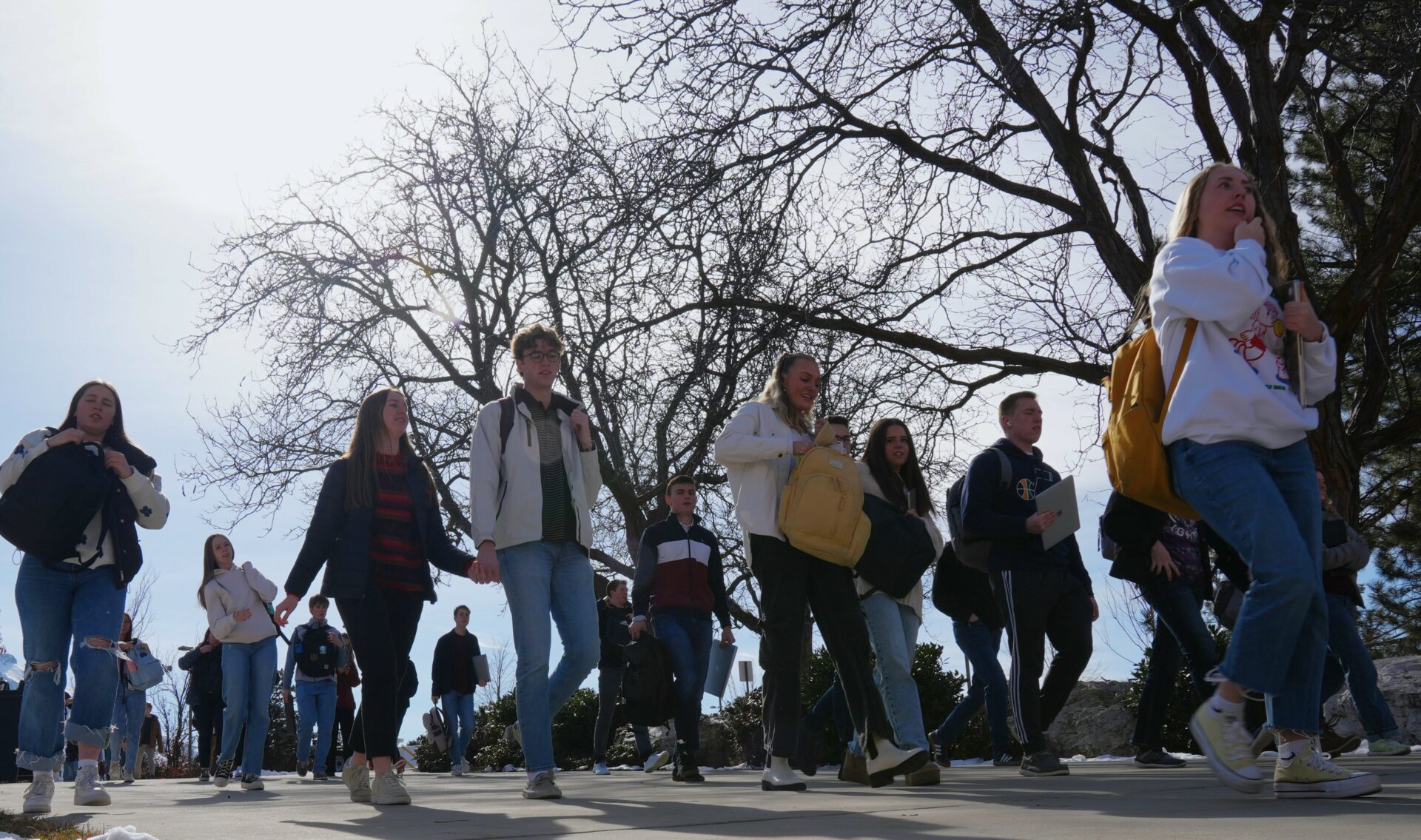
I was studying in the Wilkinson Student Center one afternoon when two guys approached me.
“Hey, would you mind answering a quick question for us? For a TikTok video?” they asked. I knew these two. I’d seen them before, though never in person.
I said yes. My face flushed a deep red as I stood to face the iPhone camera pointing at me. The rest of our interaction was over in less than a minute.
“Do you consider yourself a feminist?” they asked me.
I answered briefly in the affirmative, eager for the conversation to be over so my face would settle back to its natural shade. I had just been interviewed by the Black Menaces, a group of BYU students whose man-on-the-street TikTok interviews have gone viral.
The Black Menaces are not the only people who have done this. Former BYU students like Daniel Spencer, non-BYU students like James Seo, and even out-of-state-ers like Robert Spencer post videos to a similar, incredulous reception.
Videos where people ask strangers to answer a trivia question or name the song they’re listening to are a dime a dozen. Posts like the one I was interviewed for are unique because of the BYU students. Because BYU students are “weird.”
At least, that’s what commenters seemed to think:
“This place HAS to be a social experiment.”
“Some of these kids have been sheltered their whole lives and it’s sad.”
“After these videos y’all will never see me step foot in BYU.”
“My brain can’t accept the fact that this isn’t staged.”
To be fair, not all the comments were so negative. Some users were assuaged by my answer, brief as it was. But any appreciation only existed against a backdrop of distaste for everyone else’s. I was OK because I wasn’t one of those BYU kids.
But here’s the thing: BYU’s leadership would agree with TikTok commenters that BYU students are different. In fact, they’d probably argue that’s the whole point of a BYU education.
1 Peter 2:9 reads, “But ye are a chosen generation, a royal priesthood, an holy nation, a peculiar people.”
It’s a phrase that’s become a badge of honor for members of The Church of Jesus Christ of Latter-day Saints, and BYU by extension.
C. Shane Reese, the university’s new president, echoed this sentiment in an August 2021 address to faculty and staff titled “On The Uniqueness of BYU.”
Invoking President Spencer W. Kimball, he said, “There are many ways in which BYU can tower above other universities — not simply because of the size of its student body or its beautiful campus, but because of the unique light BYU can send forth into the educational world.”
The most obvious peculiarity is perhaps the CES Honor Code; BYU has reigned as the “most sober university” for over two decades. But the school is different in less obvious ways too. Sixty percent of students speak a second language, thanks to the large number who serve full-time international missions.
An analysis published by the Deseret News in 2023 posited that BYU might be one of the most ideologically balanced universities in the country. The findings were based on professors’ political donations. Anecdotally, I started my freshman year in the throes of the 2020 election. As I’d walk across campus and under dorm room windows, Trump and Biden flags hung side by side, in equal supply.

I asked my dad what he thought about the video I was in soon after it blew up. He was cooler on it than I was at the time. Some of these video creators, especially the ones that come from minority BYU students, have said they intended to inspire change, to highlight the everyday problems they see on campus. I thought the blind spots they highlighted were eye-opening.
My dad didn’t think the videos were quite so productive. Could you really understand someone’s perspective from a few seconds of an interview? He didn’t think BYU students were getting a fair shake. In the videos, I saw an open hand. He saw a pointing finger.
I think TikTok users saw a pointing finger too. They pointed along and laughed in the comments.
President Russell M. Nelson reframed the word “peculiar” in 1995 in a BYU devotional called “A More Excellent Hope.” He said the word “peculiar” in the Bible comes from the Greek “peripoiesis,” which translates to “possession” or “an obtaining,” and the Hebrew “cgullah,” which means “treasure.”
“With that understanding,” President Nelson said, “we can see that the scriptural term peculiar does not mean strange or odd at all. It signifies valued treasure, made, or selected by God.”
So I watched some of these viral BYU videos again, with this framing in mind — thinking of peculiarities as a divine gift. And when a student said something that could be perceived as odd, like “I’ll need to do some more research on that” when asked a question about some headline in the news, or that they’d rather drink a cup of oil than a cup of coffee, they didn’t look stupid. Just peculiar.




